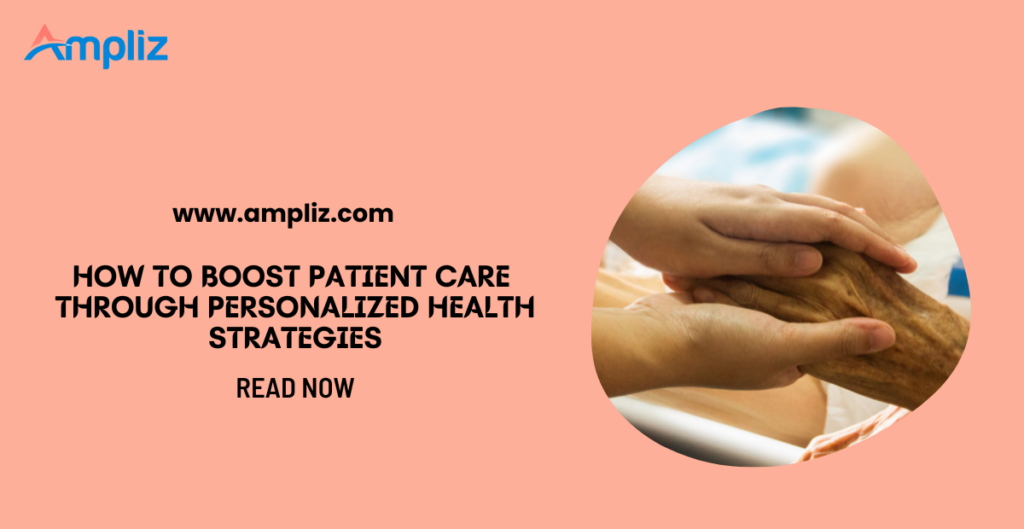You’re on the hunt for ways to elevate patient care. Personalized health strategies can make a real difference. Picture this: tailored treatments, customized plans, and adaptive wellness programs that actually work for your patients.
Ever wonder how these innovations transform lives in memory care facilities or healthcare practices? We’ll break it down. You’ll discover practical approaches and emerging trends shaping patient care today.
Why stick with outdated methods when cutting-edge technology offers better outcomes? You owe it to your patients and practice to stay informed.
Read on to uncover actionable insights designed just for you.
Tailored Education Programs for Patients and Families
It’s not all the time that patients will be in the abled professional hands of their care providers. This makes comprehensive education crucial. Empowering patients and their families with specific knowledge about conditions, treatments, and self-care routines enhances health outcomes.
When this education is tailored to individual needs, comprehension improves significantly. For instance, memory care facilities often use visual aids or simplified explanations to match cognitive levels. Customized resources like videos or interactive apps provide ongoing support.
Investing in personalized educational tools can transform patient engagement and compliance rates by demystifying complex medical jargon into everyday language everyone understands.
Individualized Care Plans for Enhanced Patient Outcomes
This is perhaps the most effective way to enhance patient care experience and maximize positive results. You see, when healthcare providers design treatment plans around individual needs, patients receive more precise and effective care. These personalized approaches consider unique medical histories, lifestyle factors, and even genetic information.
For chronic conditions or cognitive impairments like Alzheimer’s or Parkinson’s disease, tailored plans can significantly improve quality of life. Aligning treatments with specific patient profiles makes it easier to monitor progress and adjust interventions as necessary.
As a classical example, Fox Trail’s several memory care facilities in New Jersey exemplify this approach by providing custom care services for dementia and other cognitive issues. Their dedicated programs highlight the benefits of individualized attention in improving overall patient outcomes.
Adapting Routines to Meet Unique Patient Needs
Flexibility is a game-changer in patient care. Adjusting daily routines to cater to individual needs can make a significant impact on health and well-being. This approach allows caregivers to accommodate physical, emotional, and cognitive changes effectively.
Consider adaptations like:
- Modifying meal times for better nutritional intake
- Customizing exercise routines for mobility improvement
- Scheduling activities around peak energy levels
- Incorporating personalized relaxation techniques
Implementing these small yet meaningful changes helps create a more supportive environment. By prioritizing the unique requirements of each patient, you not only enhance their quality of life but also foster stronger relationships between patients and caregivers.
Implementing Remote Patient Monitoring Systems
Quality care shouldn’t stop at the point when a patient leaves a health facility. Remote patient monitoring (RPM) systems bridge this gap by providing continuous, real-time health data to clinicians. This tech-driven approach allows for timely interventions and adjustments, improving chronic disease management.
Utilizing devices like wearables or home sensors helps track vital signs, medication adherence, and activity levels seamlessly. RPM is particularly beneficial for patients with conditions such as diabetes or heart disease where consistent monitoring is crucial.
The data collected empowers healthcare providers to personalize treatments more effectively while offering patients peace of mind through constant connectivity.
Designing Adaptive Wellness Programs for Better Engagement
Creating wellness programs that evolve with patient needs can drastically improve engagement. These adaptive programs are tailored to the physical and mental health requirements of each individual, offering a more holistic approach to care.
Consider how varying activities based on energy levels, interests, or health conditions keep patients motivated and involved. For example, integrating art therapy or mindfulness sessions addresses diverse preferences.
Such customized initiatives often serve as a mental well-being solution, promoting emotional stability alongside physical health. The end result is a more comprehensive and engaging patient experience that supports overall well-being.
Predictive Analytics in Early Disease Detection
Needless to mention, it’s often easy to treat and even cure a disease that’s detected early. Predictive analytics leverages vast amounts of health data to forecast potential health issues before they become critical.
Consider its applications:
- Identifying at-risk patients through pattern recognition
- Anticipating disease outbreaks based on population data
- Personalizing preventive care strategies
- Monitoring chronic conditions for signs of deterioration
Harnessing these insights allows healthcare providers to intervene proactively. When potential problems are addressed early, patient outcomes improve significantly.
In other words, predictive analytics transforms reactive treatment into proactive care, offering a future where prevention is the norm rather than the exception.
Personalized Medication Management Techniques
Medication effectiveness can vary significantly among patients. By tailoring medication management to individual needs, healthcare providers can optimize therapeutic outcomes and minimize side effects.
Some effective techniques include:
- Genetic testing for drug response prediction
- Customizing dosages based on metabolic rates
- Regularly reviewing and adjusting medications
These strategies ensure that each patient receives the most appropriate medication regimen. For instance, genetic testing helps identify how a patient metabolizes specific drugs, allowing for precise dosing.
Ultimately, personalized medication management improves compliance and enhances overall health by aligning treatments with each patient’s unique biological makeup.
Integrating Telehealth Services with Personalized Approaches
In addition to time savings, patients no longer have to spend on transportation to access healthcare services. This convenience boosts patient satisfaction and adherence.
Telehealth platforms can be customized to meet individual needs by offering virtual consultations, remote monitoring, and tailored follow-up care plans. With freedom being the major reason behind the telehealth industry’s incredible growth, these services empower patients by providing flexible access to care.
Moreover, integrating telehealth with personalized strategies enhances overall treatment effectiveness and ensures continuous engagement in health management.
Leveraging AI for Customized Treatment Plans
With literally every industry benefiting from artificial intelligence, it might perhaps be safe to call it the innovation of the decade. Healthcare is no exception, where AI plays a transformative role in developing customized treatment plans among other applications.
Here are some tips you could use to harness this technology:
- Implement natural language processing for better patient records analysis
- Integrate AI-driven decision support systems into clinical workflows
- Consider using machine learning algorithms to predict patient outcomes
As AI in healthcare continues to advance, these strategies enable more accurate diagnoses and tailored therapies. This results in personalized care that aligns with each patient’s unique medical profile and needs.
Holistic Approaches Combining Traditional and Modern Medicine
Modern healthcare thrives by merging traditional practices with contemporary medical advances.
For instance, acupuncture complements conventional pain management, offering patients relief without excessive medication. Or, consider yoga and meditation incorporated into treatment plans for mental health conditions alongside psychotherapy.
Exploring alternative methods like introducing calming audio tracks, can support holistic treatments addressing the body, mind, and spirit.
Integrating age-old wisdom with new technology creates a comprehensive care model that enhances overall patient well-being.
Such synergy provides balanced solutions that can be tailored to individual needs for more effective healing outcomes.
Community-Based Support Networks for Enhanced Personalization
Finally, a patient’s social circle can have a tremendous impact on their health journey. Community-based support networks provide emotional and practical assistance tailored to individual needs. Engaging with local groups or online forums fosters a sense of belonging.
Where to start? Care providers could leverage community resources to organize group activities that promote wellness, and create peer support systems for sharing experiences and advice.
These networks offer personalized care beyond clinical settings, enriching the patient experience through shared knowledge and mutual encouragement.
Healthcare providers hold the key to transforming patient care through personalized health strategies. By adopting innovative approaches, they enhance outcomes and improve lives. Staying informed and adaptable ensures that every patient receives the individualized attention they deserve, fostering a future of more effective and compassionate healthcare.



